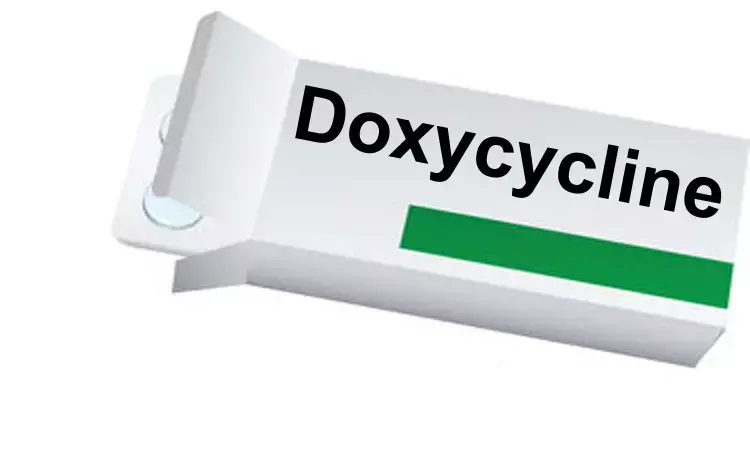- Home
- Medical news & Guidelines
- Anesthesiology
- Cardiology and CTVS
- Critical Care
- Dentistry
- Dermatology
- Diabetes and Endocrinology
- ENT
- Gastroenterology
- Medicine
- Nephrology
- Neurology
- Obstretics-Gynaecology
- Oncology
- Ophthalmology
- Orthopaedics
- Pediatrics-Neonatology
- Psychiatry
- Pulmonology
- Radiology
- Surgery
- Urology
- Laboratory Medicine
- Diet
- Nursing
- Paramedical
- Physiotherapy
- Health news
- Fact Check
- Bone Health Fact Check
- Brain Health Fact Check
- Cancer Related Fact Check
- Child Care Fact Check
- Dental and oral health fact check
- Diabetes and metabolic health fact check
- Diet and Nutrition Fact Check
- Eye and ENT Care Fact Check
- Fitness fact check
- Gut health fact check
- Heart health fact check
- Kidney health fact check
- Medical education fact check
- Men's health fact check
- Respiratory fact check
- Skin and hair care fact check
- Vaccine and Immunization fact check
- Women's health fact check
- AYUSH
- State News
- Andaman and Nicobar Islands
- Andhra Pradesh
- Arunachal Pradesh
- Assam
- Bihar
- Chandigarh
- Chattisgarh
- Dadra and Nagar Haveli
- Daman and Diu
- Delhi
- Goa
- Gujarat
- Haryana
- Himachal Pradesh
- Jammu & Kashmir
- Jharkhand
- Karnataka
- Kerala
- Ladakh
- Lakshadweep
- Madhya Pradesh
- Maharashtra
- Manipur
- Meghalaya
- Mizoram
- Nagaland
- Odisha
- Puducherry
- Punjab
- Rajasthan
- Sikkim
- Tamil Nadu
- Telangana
- Tripura
- Uttar Pradesh
- Uttrakhand
- West Bengal
- Medical Education
- Industry
No benefit of Doxycycline to avoid surgery for abdominal aortic aneurysm: JAMA

JAMA study reveals that Doxycycline did not significantly reduce growth of small abdominal aortic aneurysms after 2 years.
Researchers at the University of Maryland School of Medicine (UMSOM) found in a new landmark study that patients with abdominal aortic aneurysm received no benefits from taking a Doxycycline to reduce inflammation.
Patients who took the antibiotic doxycycline experienced no reduction in the growth of their aneurysm over two years compared to those who took a placebo, according to the study published today in the Journal of the American Medical Association (JAMA).
The finding could lead doctors to stop prescribing the drug as a way to prevent small aneurysms from growing larger and bursting.Doctors had traditionally monitored the aneurysm growth and sometimes opt to prescribe doxycycline in an effort to forestall surgery in higher-risk patients, a practice that was based on earlier research suggesting that certain antibiotics reduce inflammation that contributes to aneurysm growth.
"This study provides strong evidence that doxycycline is of no benefit for patients with small abdominal aortic aneurysms in terms of preventing their growth. Health care providers should take note of the finding and stop using this as a prophylactic treatment," said corresponding author Michael Terrin, MDCM, MPH, Professor of Epidemiology and Public Health at UMSOM. Researchers from the University of Nebraska Medical Center, the University of Wisconsin School of Medicine and Public Health and Vanderbilt University School of Medicine also had leadership roles in the study.
Abdominal aortic aneurysm is a swelling or ballooning that occurs in the major blood vessel (aorta) that supplies blood from the heart to the lower half of the body. It affects about 3 percent of older Americans, most commonly men and smokers. The condition can cause fatal internal bleeding if the aneurysm grows large enough to burst. Small aneurysms frequently cause no symptoms and are often detected when an abdominal ultrasound or CT scan is performed for other reasons.
Doctors usually monitor the growth of the aneurysm and sometimes opt to prescribe doxycycline in an effort to forestall surgery in higher-risk patients. This practice was based on earlier research suggesting that certain antibiotics reduce inflammation that contributes to aneurysm growth.
The JAMA study involved 254 patients with small aneurysms who were randomly assigned to take either 100 milligrams of doxycycline twice daily or a placebo for two years; CT scans performed at the beginning of the study and on follow-up found no differences in aneurysm growth between those who took the drug and those who took the placebo. Study participants were mostly white and male with an average age of 71 years.
"Randomized clinical trials are essential when it comes to answering important clinical questions," said Dean E. Albert Reece, MD, PhD, MBA, who is also Executive Vice President for Medical Affairs, UM Baltimore, and the John Z. and Akiko K. Bowers Distinguished Professor, University of Maryland School of Medicine. "This finding will help guide doctors to avoid an unnecessary treatment for a common condition associated with aging."
For more details click on the link: https://jamanetwork.com/journals/jama/fullarticle/2766422
Hina Zahid Joined Medical Dialogue in 2017 with a passion to work as a Reporter. She coordinates with various national and international journals and association and covers all the stories related to Medical guidelines, Medical Journals, rare medical surgeries as well as all the updates in the medical field. Email: editorial@medicaldialogues.in. Contact no. 011-43720751
Dr Kamal Kant Kohli-MBBS, DTCD- a chest specialist with more than 30 years of practice and a flair for writing clinical articles, Dr Kamal Kant Kohli joined Medical Dialogues as a Chief Editor of Medical News. Besides writing articles, as an editor, he proofreads and verifies all the medical content published on Medical Dialogues including those coming from journals, studies,medical conferences,guidelines etc. Email: drkohli@medicaldialogues.in. Contact no. 011-43720751


